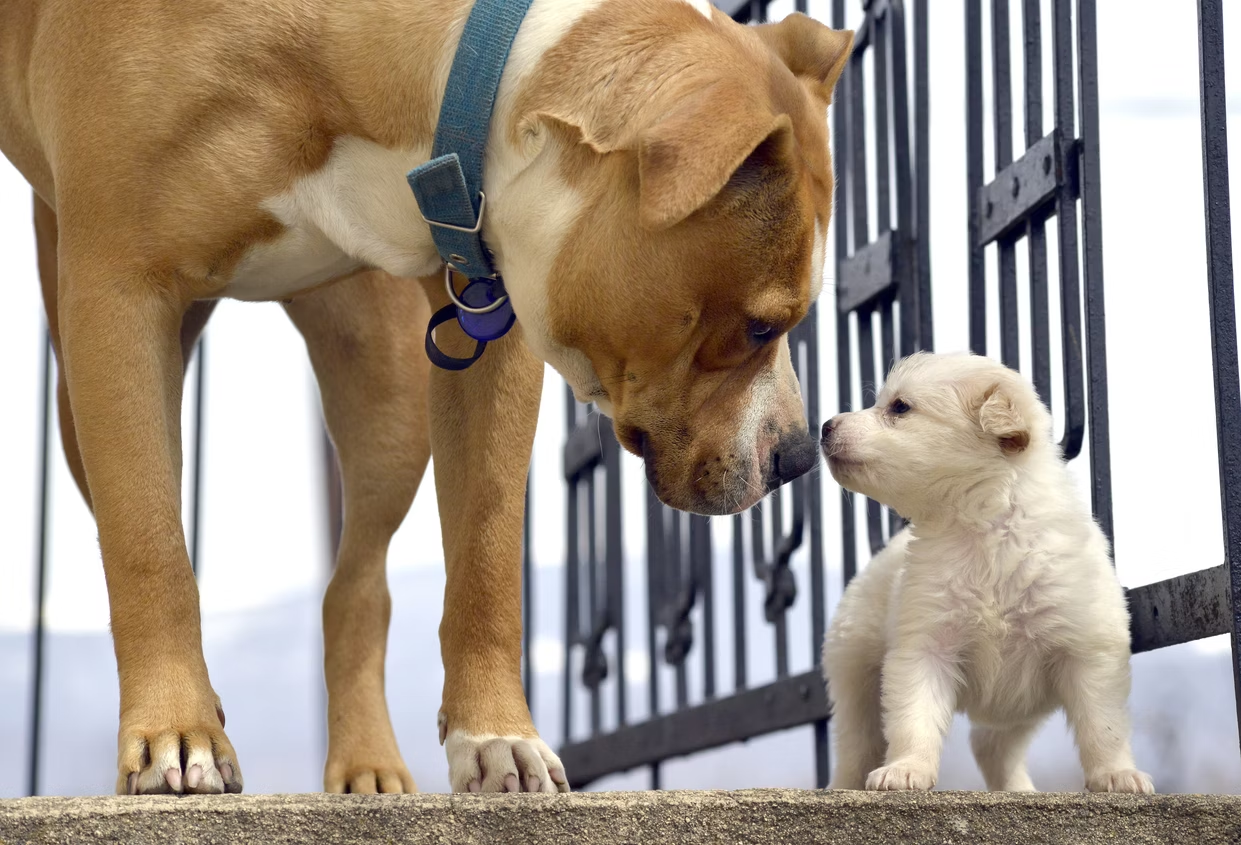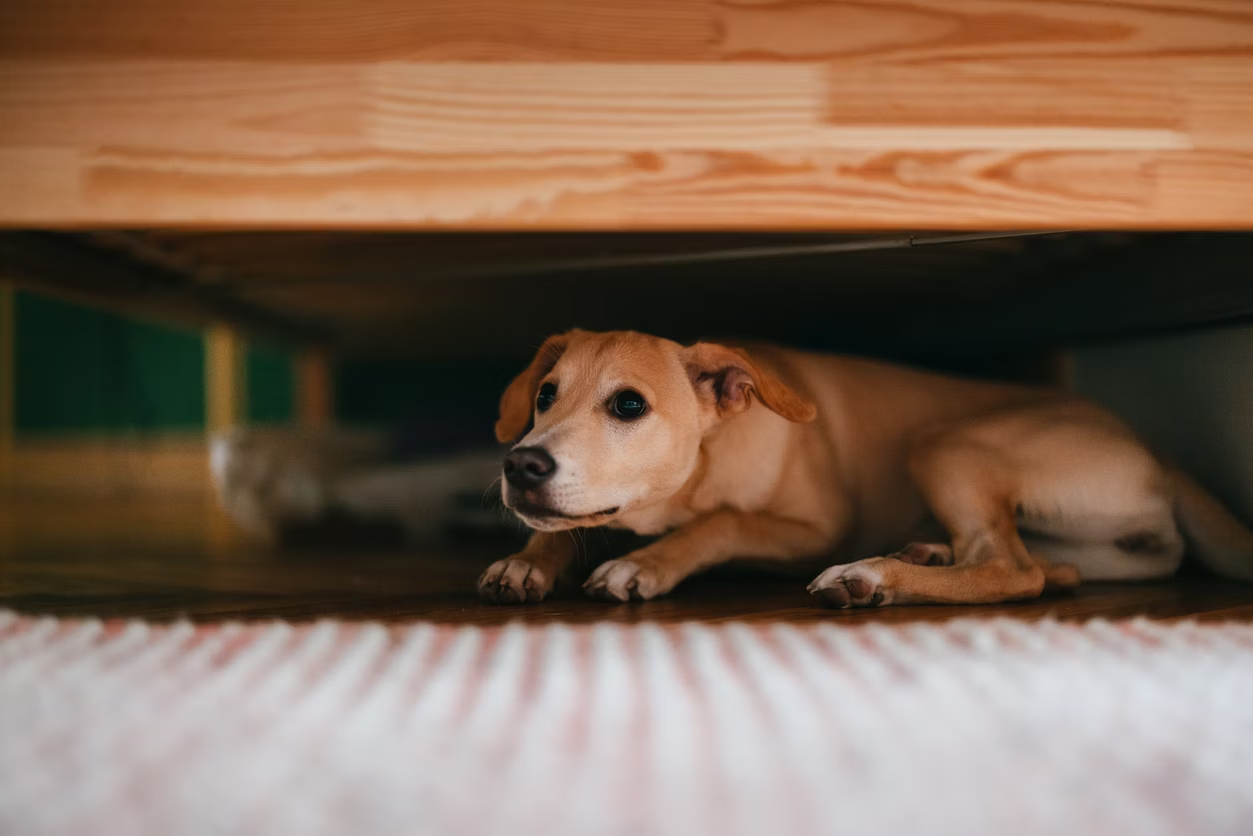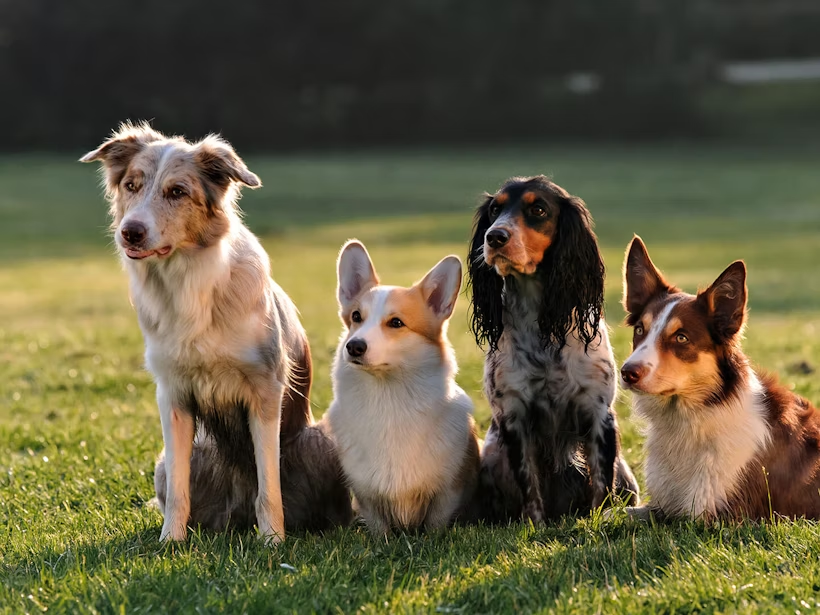Dogs are individuals with their own predispositions and preferences. Some are social butterflies and love to be surrounded by people or other pets. Others are more reserved and like their alone time. Regardless of your dog’s personality, socialisation is critical for their well-being. It helps your dog feel secure and confident and keeps those around them safe and comfortable as well.
So, let’s explore the benefits of socialisation and how you can socialise your pup regardless of their life stage.
What is dog socialisation?
Socialisation is the process of introducing your dog to a variety of experiences so they become comfortable in different situations. Examples of socialisation training include:
- Taking them to meet new people, including people of different ages and genders
- Exploring diverse environments, both indoors and outside, with varying levels of noise and activity
- Meeting different types of animals, including ones that may be future playmates and ones best viewed at a respectful distance
The goal of socialisation is to help your dog acquire the confidence and social skills needed to be a well-adjusted pup and good canine citizen in your community.
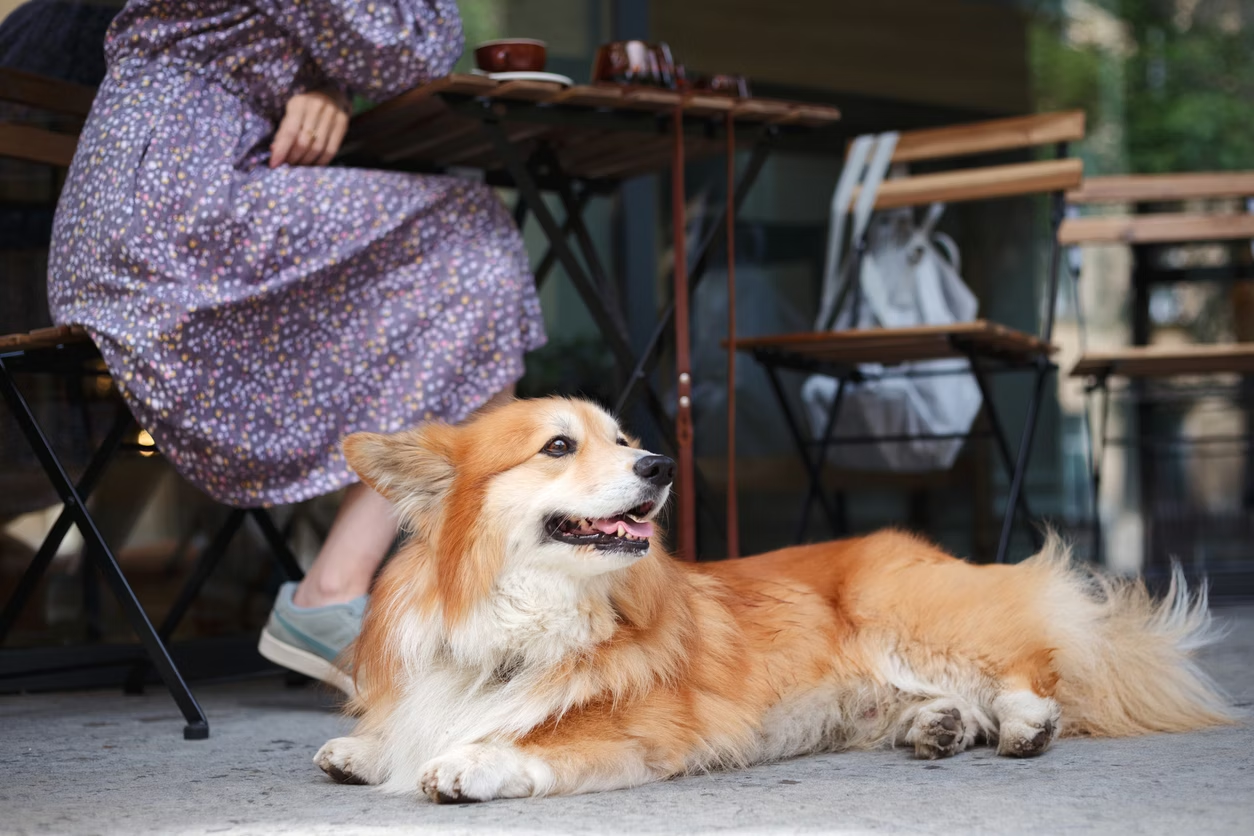
Benefits of a well-socialised dog
Socialisation offers numerous benefits that will enhance your dog’s quality of life and your relationship with them. Advantages of a well-socialised dog include:
- Reduced anxiety and fear: Socialised dogs are more adaptable and confident, making them less likely to react with fear or aggression in new situations
- Improved behaviour: Dogs that are socialised are better able to act calm and settled, whether in bustling public spaces or when you’re having friends over for dinner.
- Enhanced bonding: Socialisation strengthens the bond between you and your dog. They learn to trust you as you guide them through new experiences.
- Health benefits: Reduced stress levels can improve your dog’s overall well-being.
Socialisation at different life stages
Socialisation is often associated with puppy training. But in reality, it’s an important part of any dog’s training. The overall concepts involved in socialising a dog remain the same regardless of age, but there may be some differences in approach.
Puppy socialisation
The ideal time to start socialising a dog is during puppyhood, specifically between 3 to 14 weeks of age. During this period, puppies are highly receptive to new experiences and are more likely to develop positive associations. After all, they haven’t had much time to develop fears or much exposure to negative experiences.
Areas to focus on when socialising a new puppy include:
- Exposure to different stimuli: Introduce your puppy to various sounds, sights, and textures. This could include household noises like vacuum cleaners, different types of flooring, and outdoor environments. You can even play recordings of noises like fireworks to get them comfortable around potentially scary sounds.
- Meeting people and animals: Make sure your puppy meets a variety of people, including men, women, and children. Socialising with other friendly dogs and pets is also essential. Just remember, until your puppy is fully vaccinated, you’ll want to limit their exposure to transmissible diseases.
- Positive reinforcement: Reward your puppy with treats and praise when they react calmly to new experiences. This helps them associate happy feelings with these encounters.
For more information on puppy socialisation, check out our detailed blog post.
Adult and senior dog socialisation
Socialising adult and senior dogs can be more challenging. They have likely developed behaviours based on their previous experiences (both positive and negative). Rather than starting with a blank slate, you may have to work on breaking old habits. But with patience and consistency, they can still learn to be more comfortable in new situations.
For older dogs, your areas of focus should be:
- Gradual introductions: Slowly introduce new experiences to prevent overwhelming them. Start with quiet, controlled environments before progressing to busier settings.
- Consistency and routine: Establish a consistent routine for socialisation, incorporating short, regular sessions into their daily life.
- Behavioural training: Basic obedience training can be a foundation for socialisation, reinforcing desired behaviours and commands.
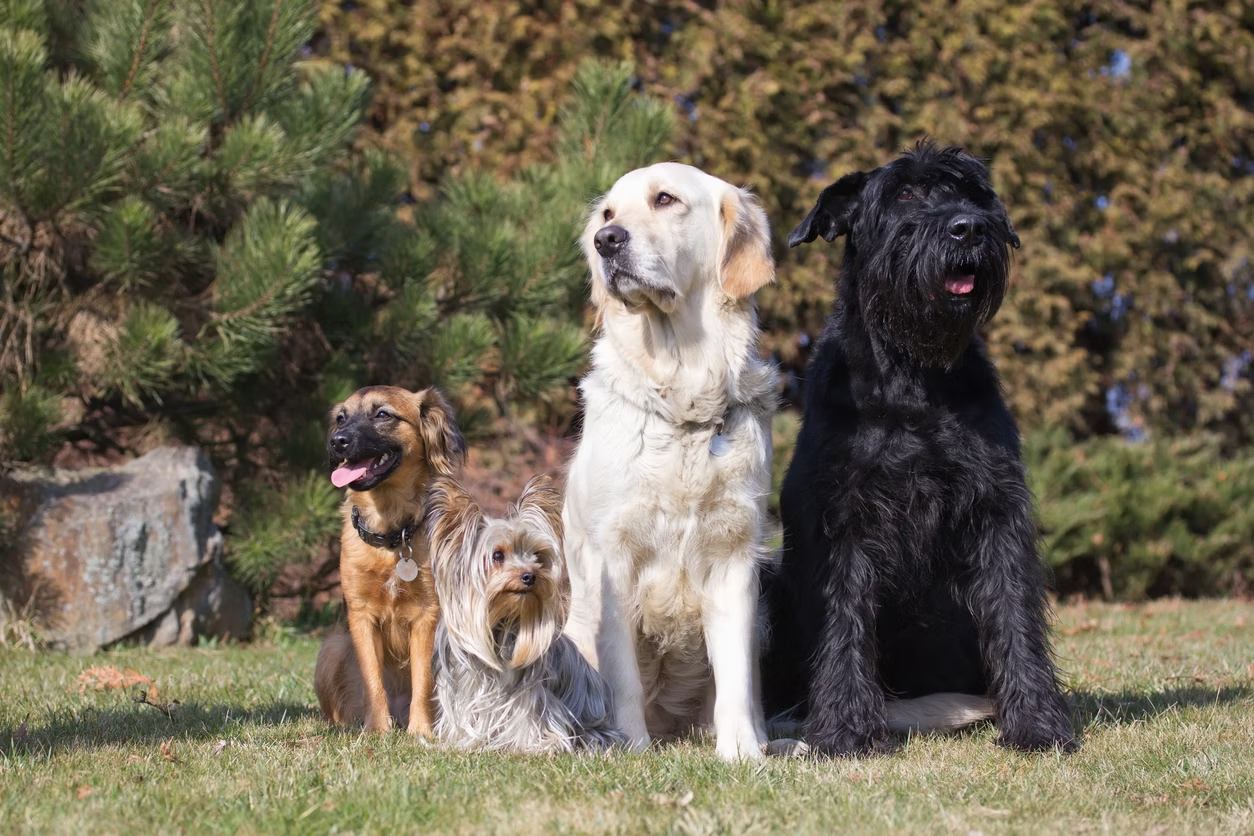
How genetics play a role in socialisation
Your dog’s DNA plays a foundational role in their behaviour. Some breeds are naturally more outgoing while others are more reserved or cautious around new people and situations. Understanding your dog’s genetic predispositions can help tailor your socialisation approach.
- Breed temperament: Research your dog’s breed characteristics to understand their natural tendencies. For instance, retrievers and spaniels are often friendly and sociable, while guard dogs might be more protective and wary.
- Genetic influences: Data analysed by Wisdom Panel’s team of scientists shows that a dog’s genes can affect their social behaviours. For example, some dog’s genetics indicate a greater likelihood of being confident around unfamiliar people, while other dogs are predisposed towards hesitancy in those situations. Wisdom’s Premium dog DNA test can shed light on these and other behavioural insights.
Tips for socialising your dog
Socialising your dog requires time, patience, and a thoughtful approach. Here are some recommendations to help you through the process:
- Start slow and steady: Whether you have a puppy or an older dog, begin with slow, controlled experiences. Gradually increase the length and intensity of interactions as your dog becomes more comfortable.
- Observe body language: Pay attention to your dog’s body language. Signs of stress, such as cowering, tail tucking, lip licking, or excessive panting, indicate that they might be overwhelmed. Give them time to adjust and retreat if necessary.
- Maintain consistency: Regular exposure to new experiences is key. Incorporate socialization activities into your dog’s daily routine to reinforce positive behaviors.
- Enroll in training classes: Consider enrolling your dog in obedience or socialization classes. These structured environments provide controlled socialization opportunities and professional guidance.
- Encourage calm behaviour: Teach your dog to remain calm and relaxed in different situations. Practice commands like "sit," "stay," and "leave it" to help manage their behaviour.
When to seek professional help
Sometimes, a little extra help is needed — especially if you’re new to dog socialisation training. Consider enlisting the help of a certified dog trainer or behaviourist if your dog:
- Displays aggressive behaviours towards people or other animals
- Shows signs of severe anxiety or fear
Final thoughts
Whether you have a puppy just learning to navigate the world or an older dog with years of experiences that influence their behaviour, taking the time to help your pet feel comfortable in new situations can significantly enhance their overall happiness and the bond you have with them. Just remember, socialisation is an ongoing process. It requires patience and dedication, but your reward will be a well-adjusted companion for life.
